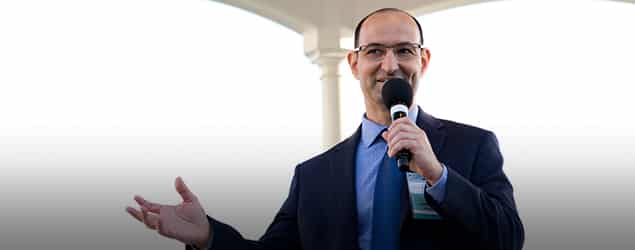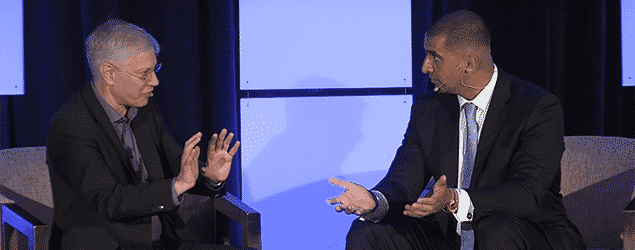Read Now: Prize-Winning Essays on Ayn Rand Novels

ARI has held worldwide essay contests for students on Ayn Rand’s fiction for thirty years. This year we will award over 750 prizes totaling more than $130,000. Last year’s contestants read and responded to essay prompts on Ayn Rand’s Anthem, The Fountainhead or Atlas Shrugged. You can read all three winning essays on our essay contest page. Here are excerpts from each of the three grand-prize-winning essays:
Atlas Shrugged essay contest
(responding to the prompt: Francisco d’Anconia says that the “words ‘to make money’ hold the essence of human morality.” What does he mean? What are today’s prevalent moral attitudes toward money? Do you agree with Francisco’s view? Explain why or why not.)
. . . When I am told that I am lucky for achieving something, I narrow my eyes and want to ask exactly what it is that I am lucky for? I am a first-generation American, first-generation college student, who received a full ride to a top-tier university. My scholarship was given to well-rounded first-generation college students, who not only excelled academically and demonstrated great leadership potential, but overcame dire socioeconomic hardship. To tell a student like myself that the sum of my achievements were based on luck is to scoff at every ounce of energy I have ever spent scrapping for what I have, and every drop of blood, sweat and tears I have ever shed working for my future—studying when my friends were out having fun, working extra hours to help support my family, etc. What am I lucky for? Am I lucky to have experienced hardship? “Luck” is a term people use in self-defense for their own lack of achievement. To say that one has luck is to imply that others do not, which is a way for those who do not achieve to undermine the achievements of those who do. What others call “luck” is what I call grit, what I call will-power, sacrifice, perseverance, and my own ability. It is what I call “earned.” . . . Christina Jeong, El Paso, TX – University of Notre Dame, Notre Dame, IN
* * *
The Fountainhead essay contest
(responding to the prompt: In his courtroom speech, Howard Roark explains the nature, motivation and importance of those who create values (such as new artworks, technological inventions and innovations, and advances in theoretical knowledge). Why does he think that value-creation and what it requires of the creators is crucially important from a moral perspective? In your answer, consider what a character from another Ayn Rand novel, Atlas Shrugged, has to say about the process of value-creation, in the speech “The Nature of an Artist.”)
. . . The protagonist of the novel, Howard Roark, is a fictional representation of these convictions — he is a philosophical idea, turned into a physical character, the manifestation of the independent, purposeful individual, whose only goal in life is his happiness. He is the creator, whose concern is conquering nature. He is the one who realises that he is the maker of his own destiny, the one who does not require others to live for his sake, and does not live for the sake of others. He is every individual who has been shamed for his achievement and later had it taken away from him; every mind, which has ever been enslaved to the degrading idea of serving “the common good” at the expense of sacrificing his own truth. He is the breaker of chains. . . . Adelina Fendrina, Sliven, Bulgaria—High School of Natural Sciences and Mathematics “Dobri Chintulov,” Sliven, Bulgari
* * *
Anthem essay contest
(responding to the prompt: Equality knows that his invention will benefit mankind greatly. However, this was not his primary motivation in conducting his experiments, and it is not the primary source of the joy and the pride he experiences in his work. What is his primary motivation? Do you think that Equality is right to be motivated in this way? Explain the reasons for your answer. What do you think the world would be like if everyone were motivated in the same way?)
Unlike during the Unmentionable Times, when men created “towers [that] rose to the sky,” it is an affliction to be born with powerful intellectual capacity and ambition in Ayn Rand’s apocalyptic, nameless society in Anthem. Collectivism is ostensibly the moral guidepost for humanity, and any perceived threat to the inflexible, authoritarian regime is met with severe
punishment. The attack on mankind’s free will and reason is most evident in the cold marble engraving in the Palace of the World Council: “We are one in all and all in one. There are no men but only the great WE, One, indivisible and forever” (6). Societal norms force homogeneity and sacrifice among all people. Laws and rules are crafted to prevent advancement and preserve relentless uniformity under the guise of moral righteousness. Here we find Equality 7-2521 on the path to self-discovery, struggling to understand the internal conflict he faces — his desire to learn and create against government indoctrination to force stagnation and conformity. . . . Elisabeth Schlossel, New York, NY – The Spence School, New York, NY
* * *
Find out more details about the contests and enter for your chance to win.



